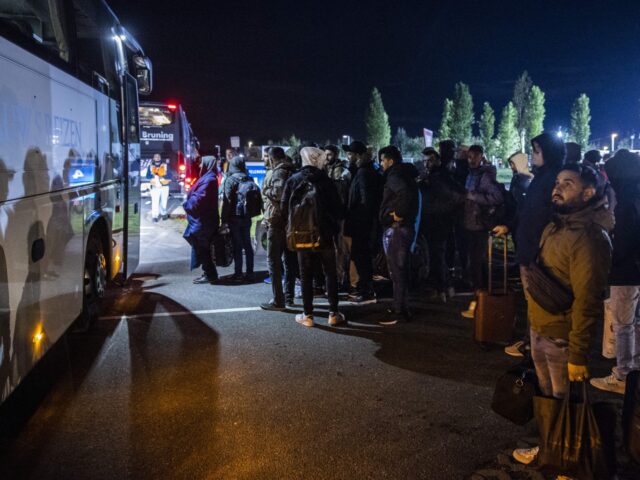The Dutch government is looking to impose a hard limit on the nation’s population in a measure to limit mass migration into the country.
Following a report from the government’s State Committee on Demographic Developments, which called for The Netherlands to impose restrictions to prevent the nation from surpassing 20 million residents by 2050, the Geert Wilders-led government is looking to enact limits on immigration and asylum seeking as it seeks to implement its election mandate of imposing strict immigration controls.
There are currently around 18 million people living in The Netherlands, making it one of the most population dense nations in the world. According to broadcaster NOS, the government would need to limit all immigration, including asylum seekers, to around 68,000 per year to avoid surpassing the threshold of 20 million by the middle of the century.
Echoing Donald Trump, MP Maikel Boon, who represented Wilders’ Party for Freedom (PVV) in the population cap debate in the House of Representatives on Wednesday, argued that it is imperative for the government to build a “a society in which the Dutch come first again.”
In contrast to pro-corporate mass migration advocates, Boon argued that immigration should not be seen as the solution to an aging population or shortages in the labour market. Instead, he argued, that the government should seek to empower its own population as well as utilizing technology and innovation.
The PVV parliamentarian also pointed to research from leading Dutch mathematician Jan van de Beek, who found that 80 per cent of immigrants in the country are a net drain on government resources. Furthermore, Boon noted, the research found that the total costs associated with immigration were double that of the costs of supporting an aging society, undercuting the argument that immigration is needed to bolster the economy.
Reflecting the changing mood in The Netherlands, and in Europe more broadly, former Eurocrat turned leader of the left-wing GreenLeft–Labour party, Frans Timmermans, signalled on Wednesday that his traditionally pro-mass migration party would likely support the government in enacting a population cap.
In addition to financial strain on the state, Boon said that the mass migration experienced by the country and the increase in multiculturalism has also had detrimental societal impacts for the country.
“On a shopping evening, walk through the shopping street of a medium-sized city. What do you notice? You hear predominantly Moroccan, Turkish, Arabic or Polish, you see how the composition of society has changed drastically. We see this pattern in many places: at the town hall, where you hear foreign languages more often than Dutch before renewing a passport or driver’s license,” he said.
“Visit a doctor or a dentist. There, too, the change is clearly noticeable. The waiting room is filling up less and less with Dutch and more and more with sounds from other languages.
“The consequences of these developments are also visible in higher education. Dutch seems to have almost disappeared at our universities. Many courses are given exclusively in English. Due to this massive migration, the Dutch feel more and more strangers in their own neighborhoods, cities and country.”
The PVV politician said that while concerns of the Dutch people about mass migration were long sidelined from polite debate, but it has changed following the sweeping victory of Geert Wilders and his party last year, driven in large party by a desire to cut immigration.
On top of looking to set a hard population cap, the Wilders-led government has already passed legislation to limit mass migration, including restricting chain family migration, ending the requirement for local governments to provide housing for refugees, cutting the validity of an asylum residence permit from five years to three, and enacting emergency measures to control borders.

COMMENTS
Please let us know if you're having issues with commenting.